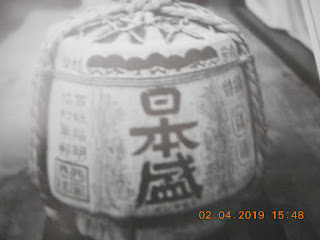I believe that is actor Koji Matoba(的場浩司), a fellow that I used to know for playing insolent punks back in the day, in ancient warrior garb making that mad dash for the camera. Ordinarily, I would have snarked that he really needed that drink, but with this ballad playing in the background, the ad now comes across as an epic scene from a period romance in the Edo Era in which the samurai is desperately catching up to his lady love who he hasn't seen in weeks or months.
In all honesty, that particular part in the refrain is the most recognizable part of "Mata Kimi ni Koishiteru" for me, and it's what makes the song. Veteran lyricist Goro Matsui(松井五郎)provided the words while guitarist Masaaki Mori(森正明)was given the composer credits; apparently, a lot of other musicians including had a hand in the crafting of the song, but ultimately, it was decided that Mori would be the official composer.
"Mata Kimi ni Koishiteru" was released as the coupling song for Sakamoto's 37th single in January 2009, "Asia no Kaizoku"(アジアの海賊...Pirates of Asia). Any remaining doubts that Sakamoto had held probably dissipated quite quickly as the single went Platinum and eventually as high as No. 3 on Oricon. It later became the 14th-ranked single for 2010, and it was so popular that the singer got to sing it in succeeding Kohaku Utagassen shows in 2009 and 2010.
I finally get to write about Billy BanBan since I've heard about these guys for years and was interested just on the name of the duo alone. Like another folk duo, Bread & Butter, Billy BanBan is a brother act with Takashi and Susumu Sugawara(菅原孝・菅原進)from Tokyo. They have been performing since 1969 (although there was a break between 1976 and 1983), so I was a little surprised on finding out that they were the original singers for such a contemporary song. The guitarist-composer, Masaaki Mori, that I mentioned a few paragraphs above happens to be a member of Billy BanBan's backing band.
The original version sounds even softer going towards the folksier side of things, and I love the gentle harmony between the Sugawara brothers in the refrain. Their "Mata Kimi ni Koishiteru" did more modestly by hitting No. 72, marking the first time in 36 years that Billy BanBan got into the Top 100 again. Interestingly enough, the original also got to adorn the same brand of sake in a commercial.

No comments:
Post a Comment
Feel free to provide any comments (pro or con). Just be civil about it.